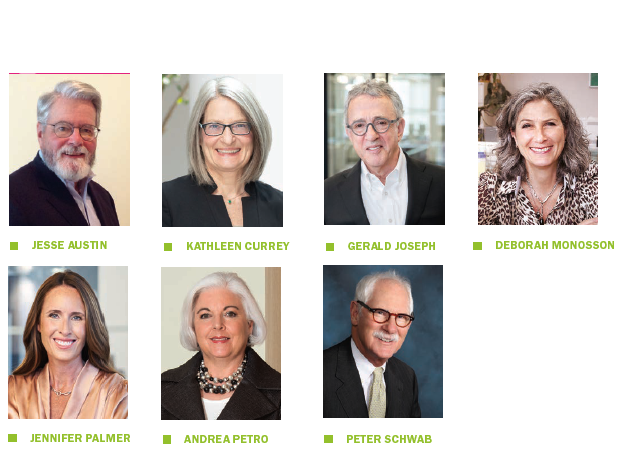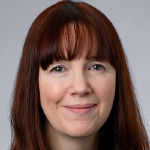Breaking the Glass Ceiling Together: Stories of Cross-Gender Mentorship
March 18, 2024
By Michele Ocejo

TSL’s editor-in-chief explores the transformative power of cross-gender mentorship, especially in a male-dominated industry where there might be a shortage of female mentors. Read on for stories of female leaders who had male mentors and how they played pivotal roles in advancing their careers, dismantling biases, and cultivating inclusive workplaces.
In the ever-evolving landscape of corporate leadership, the need for diversity and inclusion has become a paramount priority. As organizations strive to bridge gender gaps and foster environments that empower all professionals, mentoring has received much emphasis. The traditional hierarchical structures are giving way to collaborative and inclusive approaches that recognize the value of diverse perspectives at the decision-making table.
While the finance world has made significant strides in promoting gender equality, statistics continue to highlight the existing disparities. According to recent studies, women remain underrepresented in executive roles, with only a fraction breaking through to the C-Suite. According to a Deloitte study, women hold 18% of traditional C-suite positions globally, i.e., those that typically report to the CEO or to the board, such as chief executive officer, chief financial officer, chief marketing officer or chief operating
officer. The rise in C-suite representation for women has come from non-traditional roles, those that typically report to another C-level person or have been created over the last two decades, such as chief digital officer, chief diversity and inclusion officer, and chief
sustainability officer.
In an industry that has historically lacked female representation (although progress is being made), women sometimes struggle to find same-gender mentors. This article tells the stories of a few female leaders in our industry and the male executives who mentored them, some at a time when there were no women in senior positions to do so.
Kathleen Currey, partner, Parker, Hudson, Rainer & Dobbs, shared her experience as a young attorney working with Jesse H. Austin, former partner at Paul Hastings, when he and Currey worked together: “Although I have had a number of great mentors and sponsors over the years who I greatly appreciate, Jess was very influential in my early career for several reasons. He was a master at strategy. In a workout scenario, he would know where the parties needed to land and he would set a strategy so that others would
come to the same conclusion seemingly on their own. I watched him do that over and over again and I was always amazed at his ability to put all the parts in motion and then watch matters fall into place. He always took the time to explain his strategy and he included me in the conversations as his plan unfolded.”
SFNet’s fi rst female president Debbie Monosson, president & CEO, Boston Financial & Equity Corporation, had more than one male mentor: “My primary mentor was my dad. He loved mentoring and teaching, but it was a ‘tough love’ type of teaching. He would not ever answer your question, but instead replied to it with a question. He also believed in learning through mistakes. My first negotiation on an ABL deal, I was calling our attorney every five minutes not knowing that we were being billed. The invoice was incredibly high and our attorney agreed to discount it for us, but I learned a huge lesson that carries with me today. As for other male mentors, I was quite active in the SFNet (back then it was CFA) and Pete Schwab, who was chairperson at the time, approached me and invited me to lunch when he was in Boston. He really championed me as a
female executive to move up the ladder of the Executive Committee to become an officer. It was a very male-oriented organization, but he was an early supporter of women in the workplace and he helped me navigate the system.”
Andrea Petro, who served as the second female SFNet president, began her career in the 1980s. “Professional relationships between men and women were very new. Women were almost never in roles other than secretaries. Breaking new ground in professional positions that were equal to men’s was difficult and uncomfortable for everyone. I was fortunate to have three mentors: Steve Rosencranz, Scott Diehl and Pete Schwab. At each point in my career they taught me how to develop friendships with my male colleagues and our clients who were 99% male.”
Click here to continue reading the article.

